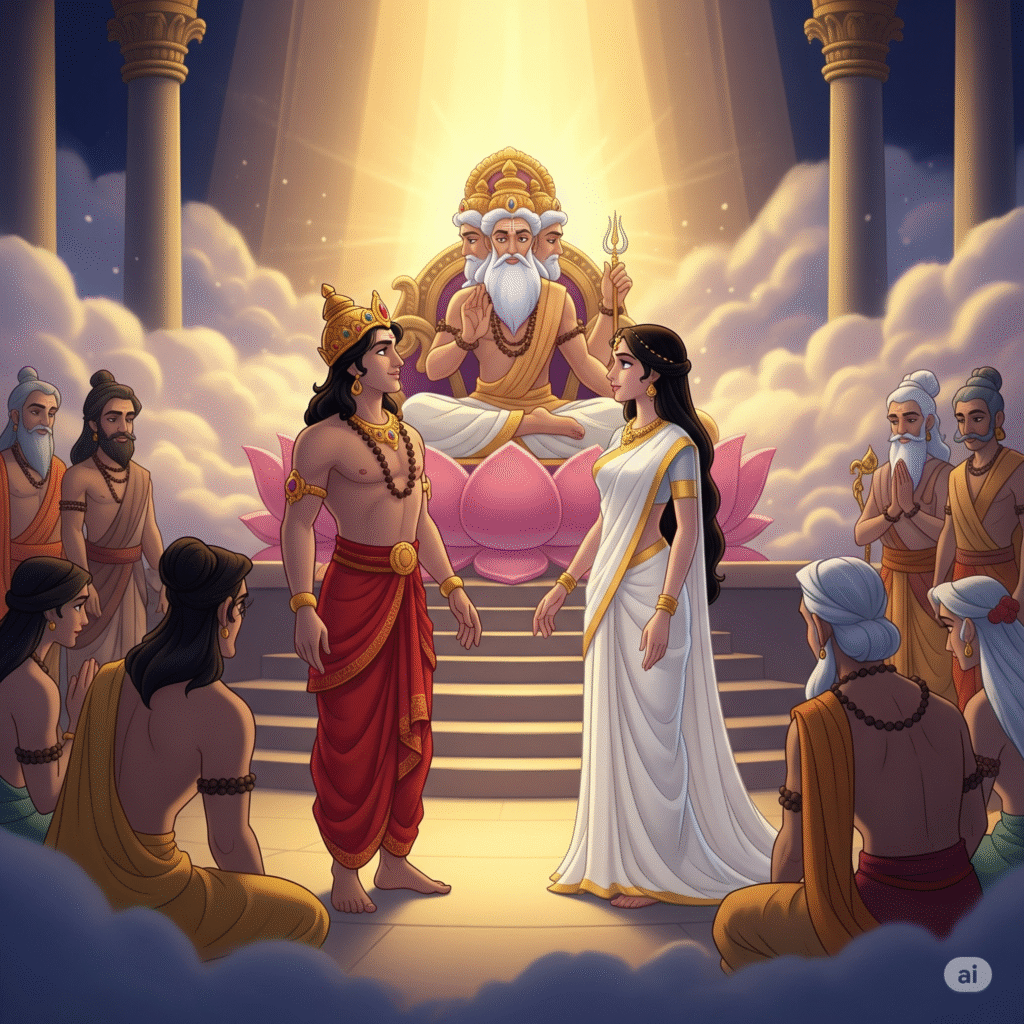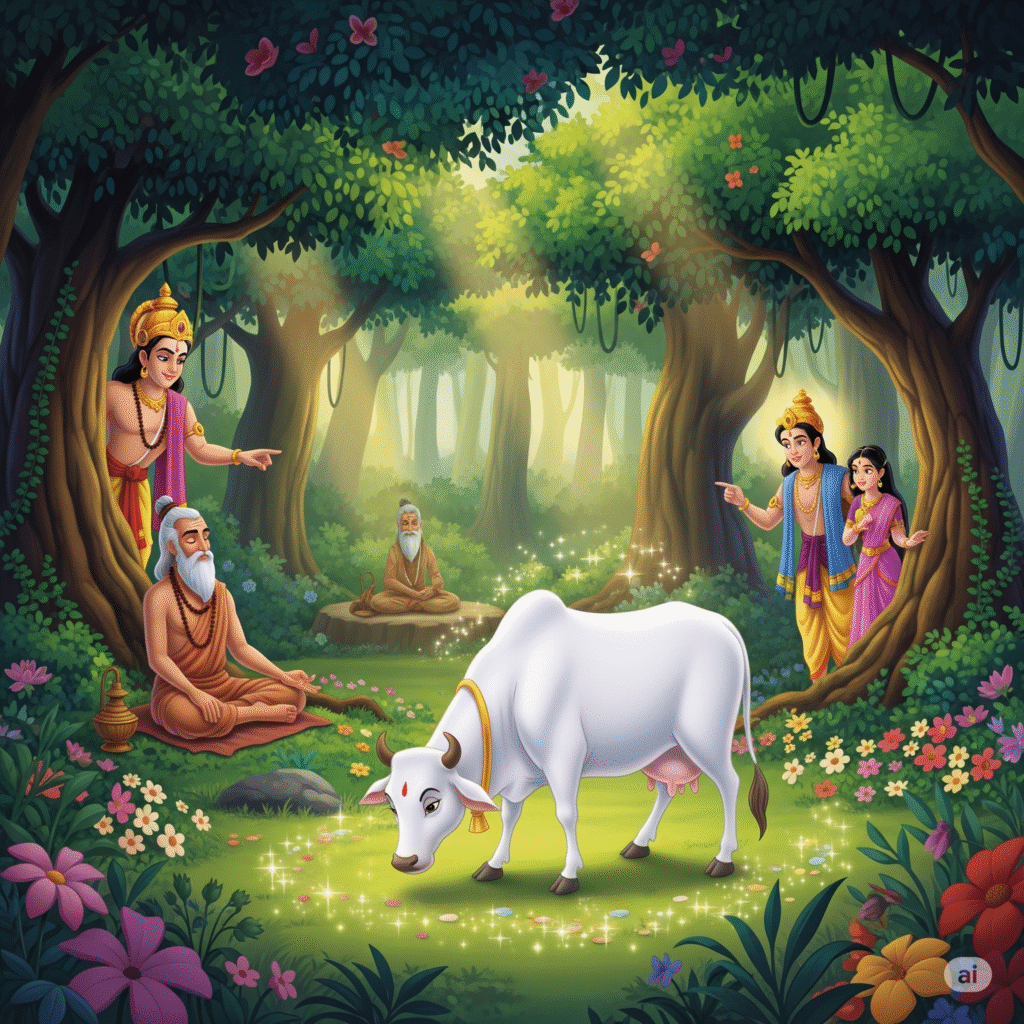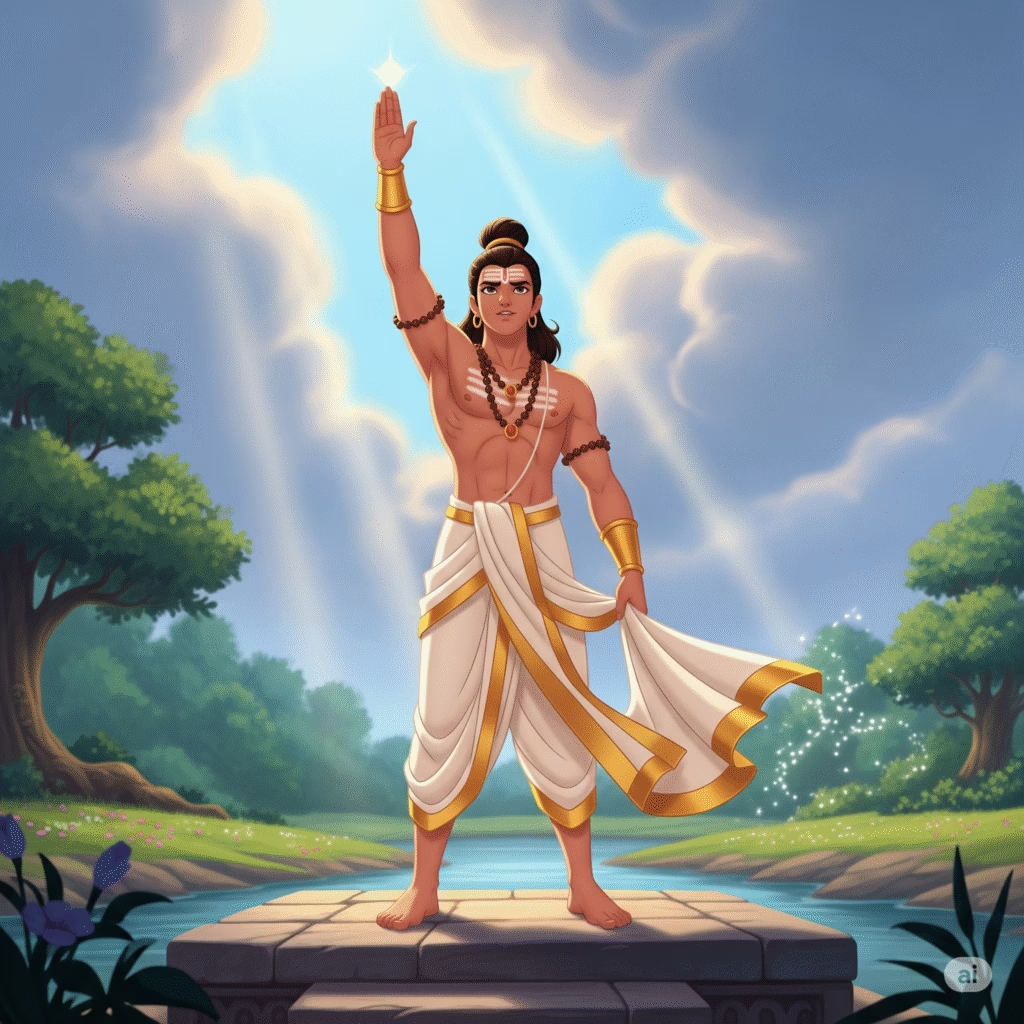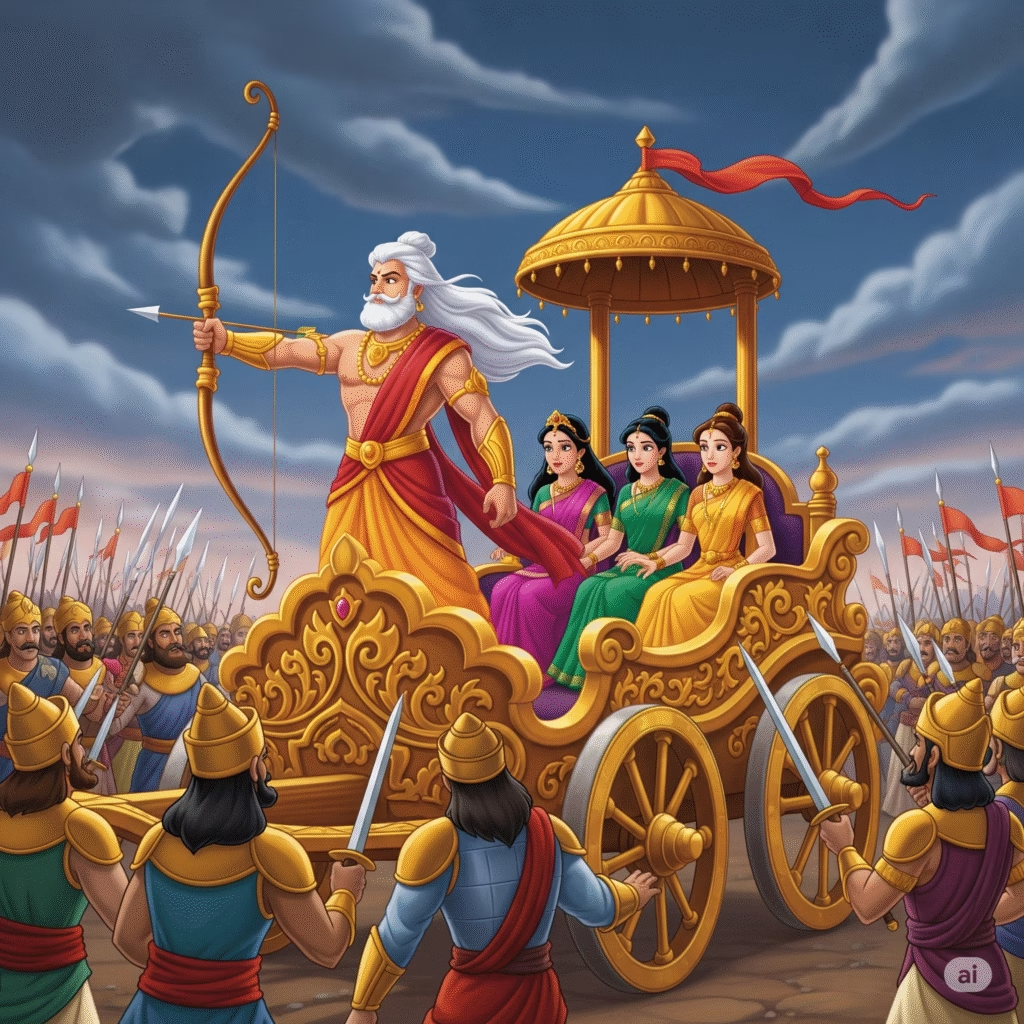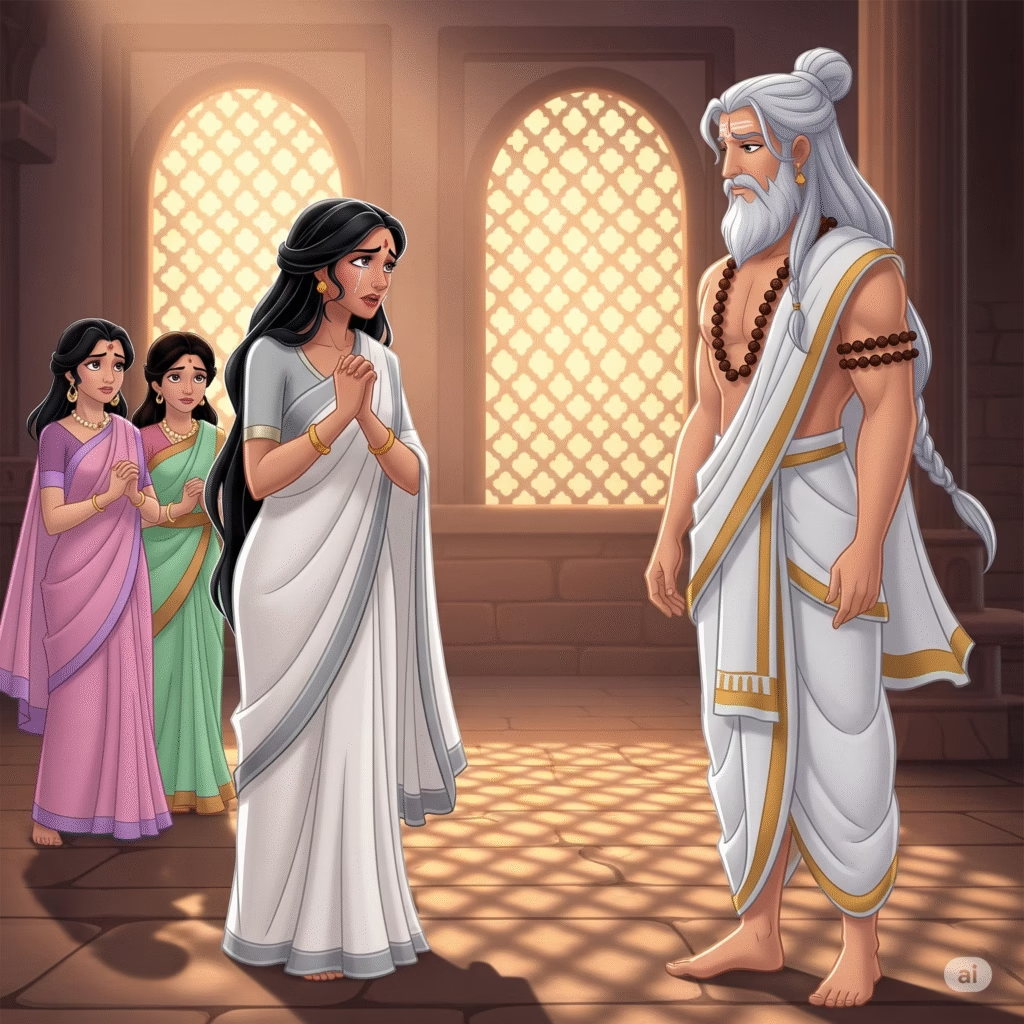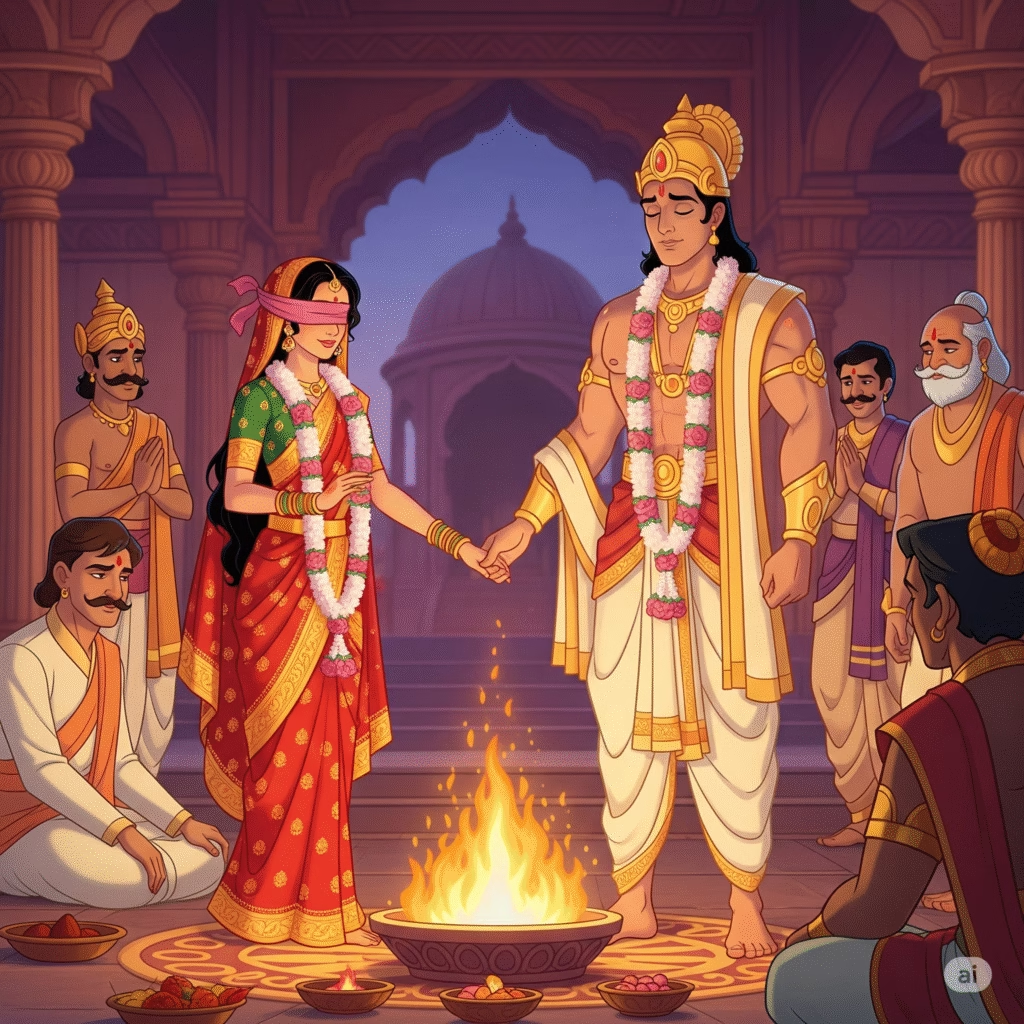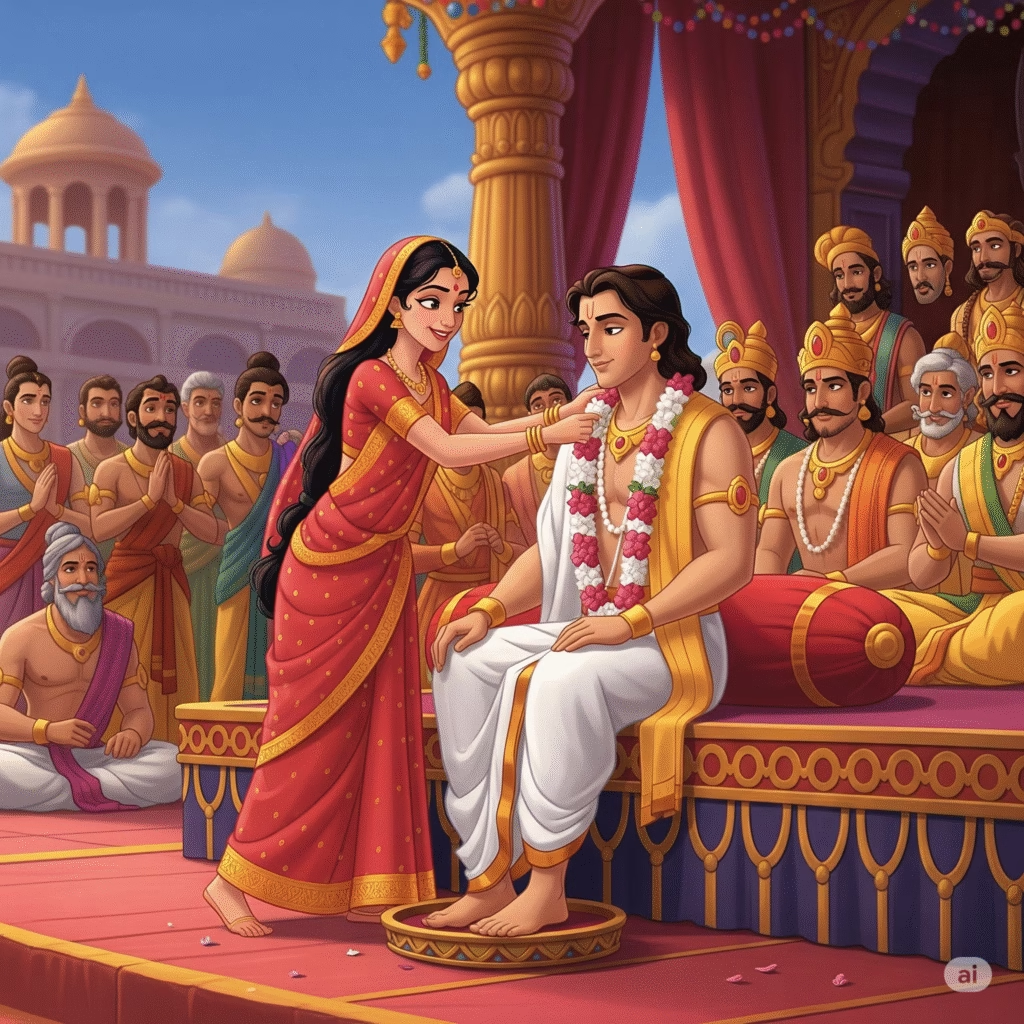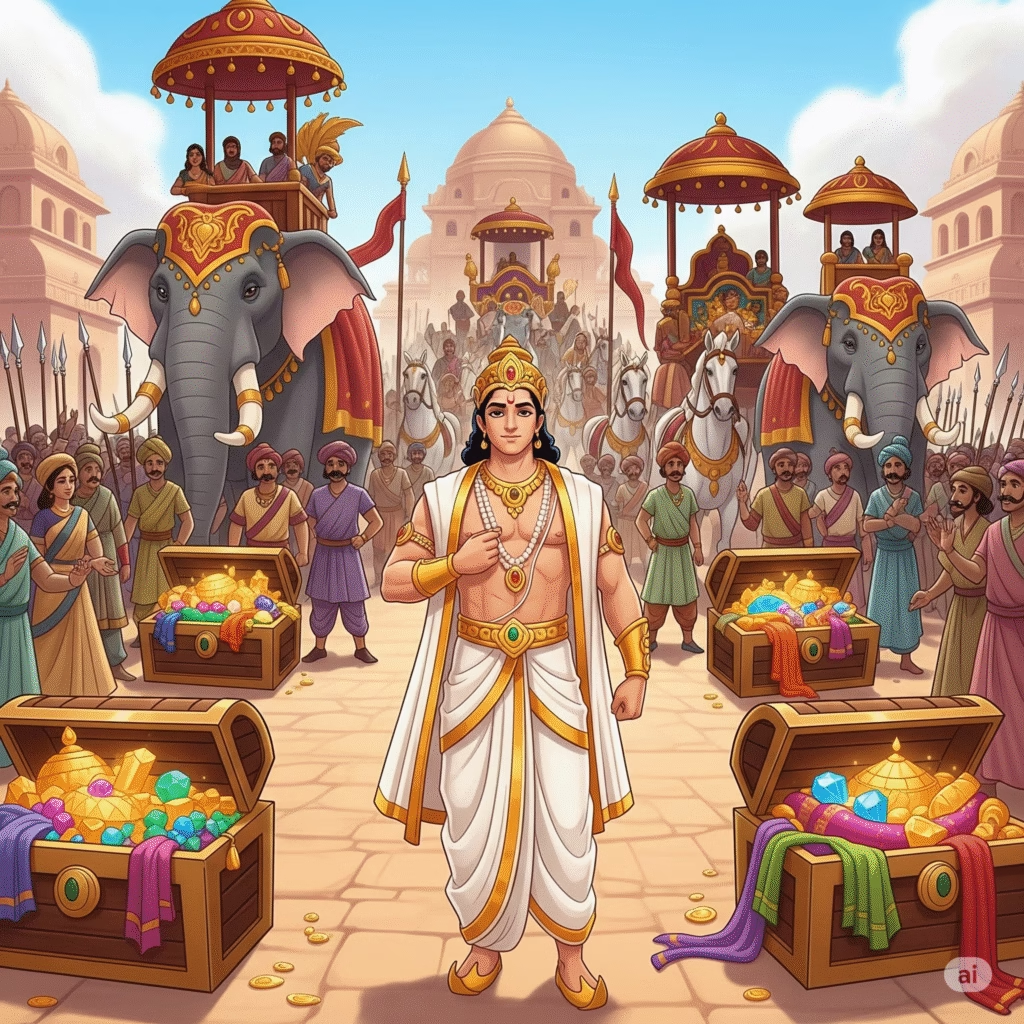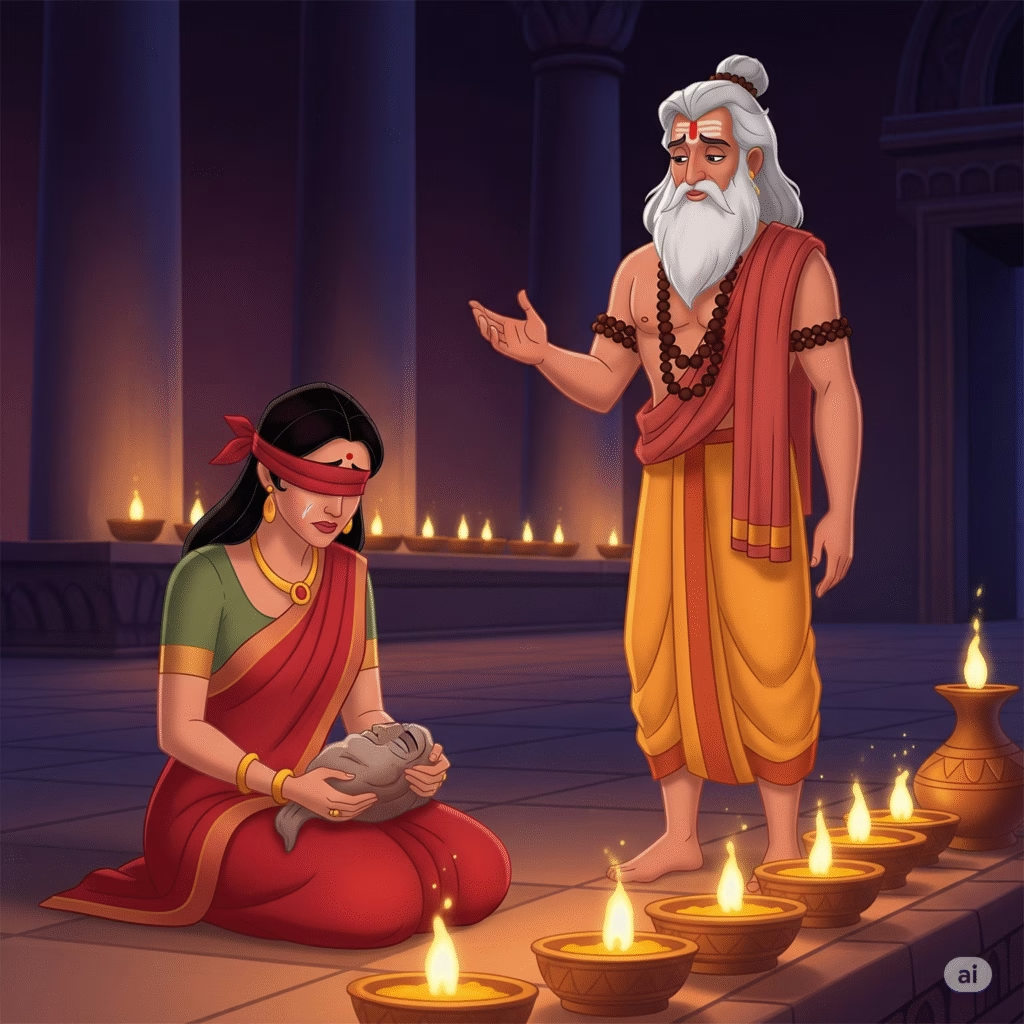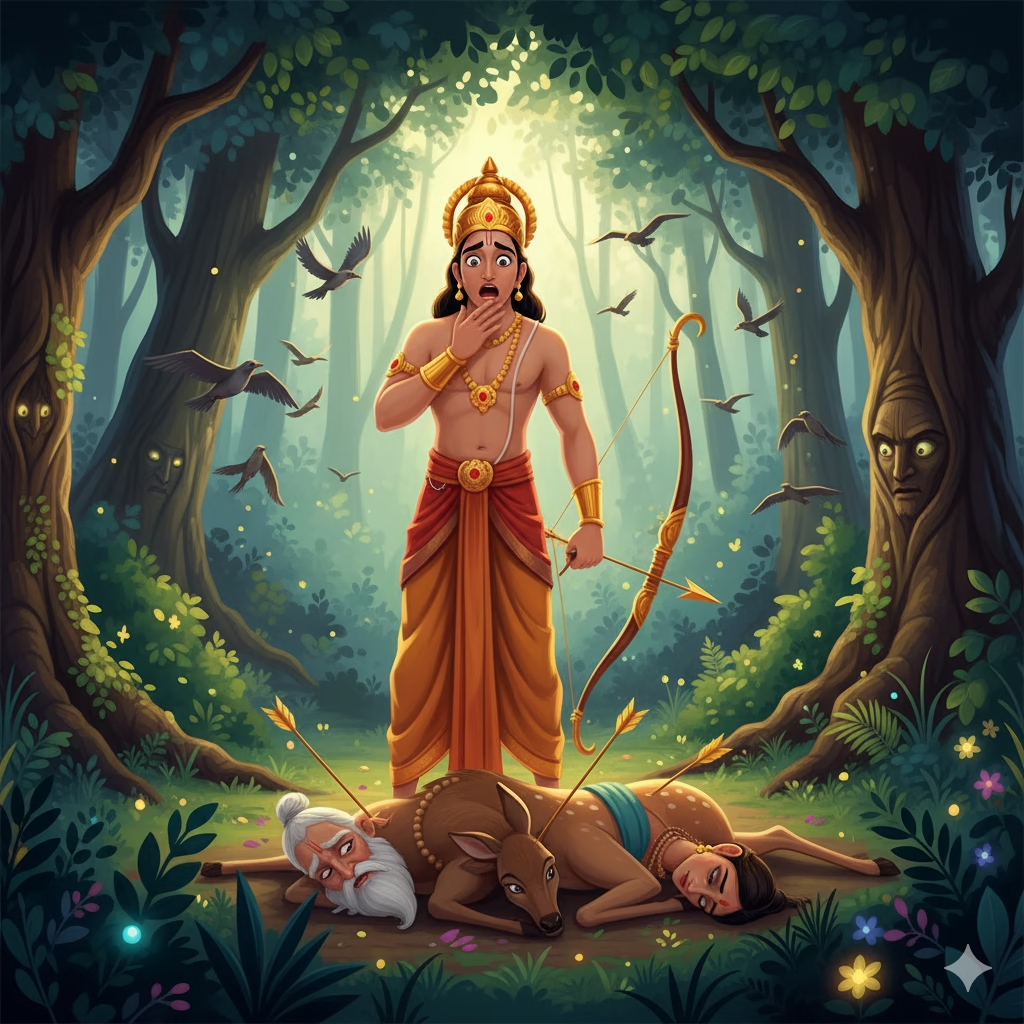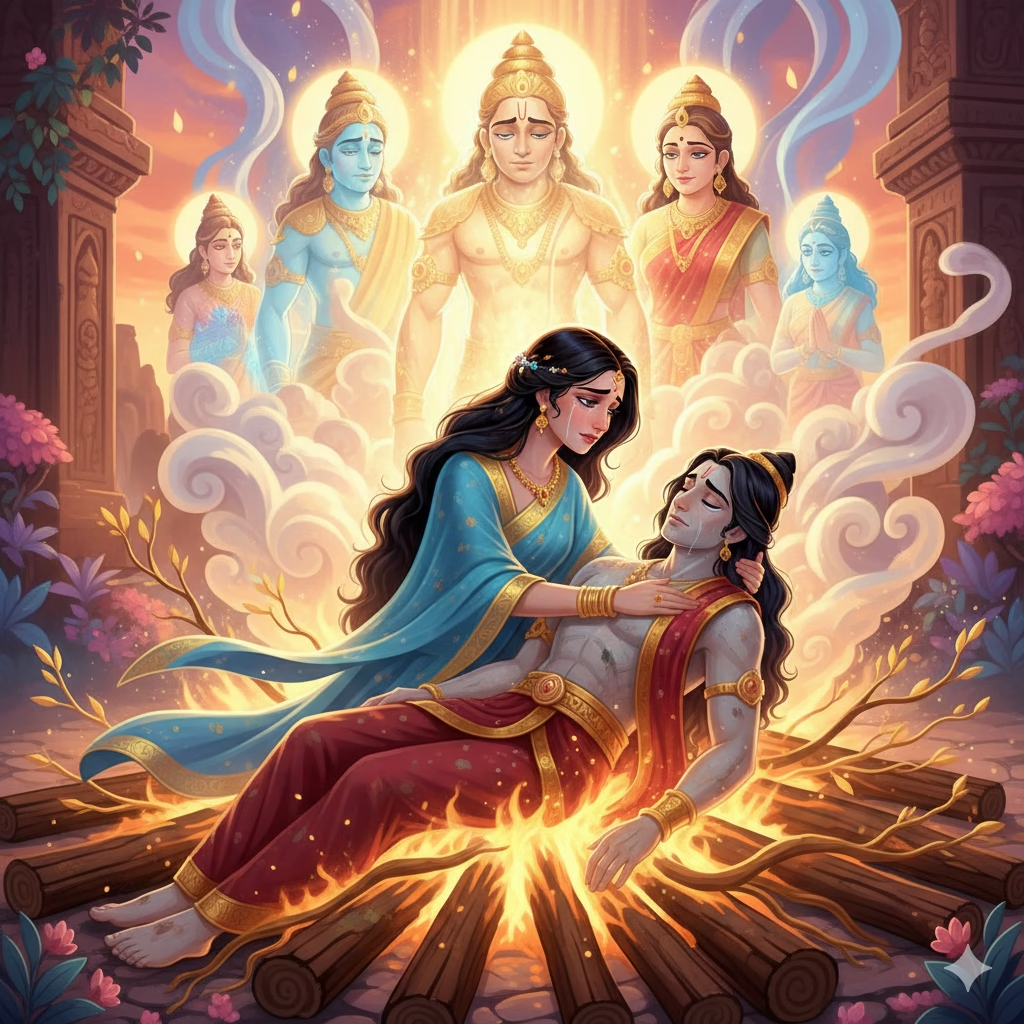In the previous blog, we saw a prince give up not just a throne but the right to love, to marry, to belong—all for a father’s unspoken longing. Bhishma’s terrible vow shook the foundation of Hastinapur and reshaped its destiny. But was the sacrifice truly enough to secure peace?
After marrying the beautiful Satyavati—the daughter of the Chedi king and raised by a Nishad chieftain—King Shantanu believed that his lineage was finally secure. The echoes from the loss of Ganga’s departure had finally faded, and the palace now brimmed with joy. From his union with Satyavati, two sons were born to King Shantanu: Chitrangad—a mighty warrior, and later Vichitravirya—a skilled archer. Before Vichitryavirya could even turn to youth, King Shantanu passed away.
After Shantanu’s demise, Chitrangada took over the throne under the guidance of Bhishma. Chindrangad was not just powerful; he was extremely proud of his strength. He was so proud that he began to consider himself unparalleled—not just among men, but among gods and demons too. His inner Kurukshetra was brewing the classic war between ability and humility.
In his hubris, he challenged everyone who crossed his path, dismissing their worth as insignificant. One day, his arrogance summoned the attention of a celestial being who bore the same name as him—Gandharva king Chitrangad. In the Hindu culture, names aren’t mere labels; they carry energy, legacy, and identity. The Gandharva challenged the human Chitrangad to a duel, saying, “If you cannot earn the name, abandon it.” The encounter was no ordinary battle. It raged for three years on the banks of the Hiranyavati River. But in the end, the celestial Chitrangad triumphed, slaying the mortal king who had mistaken power for invincibility.
When this news reached the palace, it was Bhishma who performed the last rites of his brother Chitrangad. His grief at losing the young heir of Hastinapur and his brother remained cloaked in calm strength. He did not falter. With Satyavati’s consent, young Vichitraviriya was crowned the new king of Hastinapur. Though Vichitravirya, who was barely out of childhood, was crowned the king, the throne truly rested on Bhishma’s unwavering shoulders.
In the years that followed, Bhishma guided the kingdom, taught Vichitravirya statecraft, and ensured that Hastinapur was ruled by Dharma and not by any king’s ego. Vichitravirya also honoured his elder brother Bhishma like a father, and Bhishma protected the boy like a sacred oath.
Pride plays a different game. It never attacks initially. It rarely shouts—it just whispers. You see no harm coming. The major problem with pride is that it does not grow from evil but from excellence that forgets where it came from. Pride plays on your team initially; you keep feeding it until it becomes healthy enough, and then one fine day, it plays its first and final shot, but against you. One mere shot and your entire hard work is at stake. Chitrangad’s defeat was not on the battlefield—it was in the quiet places of his mind, where he stopped seeing others as worthy. And we all carry this risk; the better we get at something, the harder it becomes for us to keep a check, to stay humble, and to bow down to this divine universe. This is the place where you see Bhishma managing his excellence beautifully. His excellence keeps serving the crown with his head down. His heart filled with love for his brothers, duty for his empire, and dharma for his soul. Such excellence manifests itself a thousandfold and becomes a lesson for generations to come.
Pride often begins as a quiet companion to your success. It tells that you are better, smarter and stronger and you start believing it. Our real battle is not against the world, but against the arrogance that grows unnoticed within. Like Chitrangad we may not see it coming until it is too late. And like Bhishma we may need to learn to kneel before purpose, not pride.
Journaling Prompts
- Where in your life is excellence flirting with ego?
- What does it mean for you to choose humility when no one is watching?


